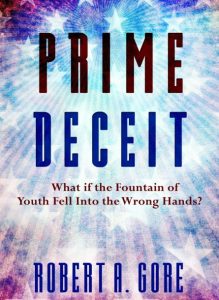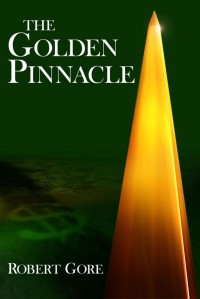
Online publishing will do to traditional publishing what online journalism has done to traditional media.
The traditional publishing industry publishes two kinds of novels: beach and bookshelf.
Beach novels populate the bestseller lists. They’re digested easily at the beach, no matter how often you check out the babes or hunks strolling by, no matter how many piña coladas or brews you’ve imbibed. Digested is the right word. People enjoy a meal but don’t much ponder or contemplate it, especially after it’s over. Beach novels are pleasant enough reading, but the world little notes nor long remembers them. Google a bestseller list from ten years ago. The titles have had the same staying power as sitcom episodes from that time.
You will, however, recognize the authors. Most of them are still cranking out the beach books on current bestseller lists. The publishing industry term for beach books is genre fiction—thrillers, historical, romance, etc. The categories are rigid and woe to the writer who strays outside them. Beach books are undoubtedly the most profitable part of book publishing.
entertaining and thought-provoking
A GREAT GIFT FOR YOUR FAVORITE DEPLORABLES!
The Holy Grail is the franchise, when an author regularly (once a year seems the norm) cranks out a book that follows the formula his or her adoring fans demand, for which they reliably plunk down the hardcover, paperback, or Kindle asking price. A franchise is the closest thing in publishing to an annuity. Staggering riches accrue to the publisher’s parent company if other subsidiaries in the conglomerate can turn the book franchise into movies, television shows, video games, mass market merchandise, and action figures.
How much satisfaction do authors get from writing books that are only marginally different from their previous books, year after year? Make enough money and the question may be irrelevant. Tom Clancy was a minority owner of the Baltimore Orioles, which takes a lot of scratch.
It’s telling that abandoning writing appears to be the pinnacle of success for a number of franchise writers. They find a “co-author,” who does most if not all the writing, give their own name top billing, and their “collaborations” find their accustomed place on the bestseller lists. For a lucky few, like Clancy, their franchise is so powerful that they can retain their spot even after they’ve died. Perhaps that elite group is not so lucky—they’re dead after all—but their posthumous success testifies to the drawing power of their names.
Bookshelf books, so named because they find their place on all the right bookshelves, win dazzling reviews and prestigious awards. They’re in the publishing industry category known as “literary fiction,” which is distinct from genre fiction. Once in a while they make the bestseller lists, but to sell that many books a lot of people have to read them. Literary fiction usually attracts a small fraction of the readership of beach books; once displayed on the bookshelf it stays there, unread.
“Uncultivated” readers have their preferences: strong characters, especially heroes, fast-moving plots, and straightforward style, with underlying themes, messages, or morals secondary, and often unnoticed, elements. In literary fiction, plots are optional and characters are often unsympathetic (e.g., drunks, addicts, deviants, perverts, and criminals). Style, however, looms large, generally screaming: “Look at me, the prodigious and precocious author who crafts precious-gem sentences that not only bedazzle but confuse the hell out of you, the hapless reader.” Your reaction is supposed to be the same as what many experience visiting museums of modern art: “This must be great because I don’t understand it.”
Like modern art, literary fiction has its caste perched loftily above the masses. They come from the same creative writing programs, write “Destined to be a Classic!” reviews for each other, and cast the votes for the literary prizes. When they’re not crafting destined-to-be-classics, they fashion articles in small-circulation journals and literary reviews (they “craft” and “fashion,” rarely engaging in anything so commonplace as writing). Favorite themes: little guys, gals, and communities ground down by corporate (but rarely government) power, or just capitalism in general; sneering takes on the empty lives of little guys, gals, and their communities; screeds against consumerism and materialism; paeans to collectivism; the virtues of various racial, ethnic, sexual, and gender-preference minorities, and odes to depraved anti-heroes.
No surprise that the literary caste shares many traits with the movie and television industry, the culture and art establishment, the mainstream media, and the powers that be. It’s coastal, affluent, insular, statist…and under siege. Just as the Internet has enabled the ascent of the alternative media, it has given rise to affordable self-publishing and wide distribution. Twenty years ago, an author had to run a gauntlet: find an agent, then a publisher; extensive editing and rewrites; bickering over layouts and graphics; publication, and then publicity—grueling self-promotion with a modicum of publisher support for all but the franchise writers. Out of favor literary or political points of view were shut out. Good writing will always require extensive editing and rewriting, and selling a book will always entail publicity and self-promotion, but the traditional publishers and literary agencies are no longer the unchallenged gatekeepers.
The biggest threat to self-publishing is its own prolific output. Thousands of titles are published daily, and many of them are not well written or edited. That doesn’t have to be the case. Everything traditional publishers offer, including writing instruction and editing, can be purchased in packages or a la carte from either companies or individual free lancers. The market is working its way around the glut problem, too. There are online discussion and review forums where the wheat gets separated from the chaff. Amazon’s reviews, rating system, sales rankings, and postal and ebook distribution have become the go-to for millions of readers. In terms of numbers, they leave traditional literary reviews eating the same dust as the Drudge Report kicks up for mainstream media outlets.
The most revolutionary aspect of online self-publishing is its potential to knock down the wall between entertaining and thought-provoking fiction. The separation of beach and bookshelf is one of those self-evident shibboleths that becomes not at all self-evident as soon as someone questions it. Why can’t novels combine intriguing plots, strong characters, entertaining style, and challenging themes? It’s not easy, but it’s not impossible. Such novels invariably obliterate the conventional publishing industry’s sacrosanct genre classifications.
At its best, a novel both compels us into the author’s imaginative world and demands that we think about our own. That kind of excellence won’t come from mainstream publishing, any more than the truth will come from the mainstream media. Novels may seem like a quaint anachronism in our time-pressed, gadget-obsessed, short-attention-span world, but it is those features of modern life that make great novels more vital than ever. Facts, trends, and analysis are the “now” rushing by. What’s happening? Where are things going? “What’s ‘everybody’ doing? Novels are contemplation, reflection, and ultimately, wisdom. What’s important to me? Where am I going? Where is the meaning in my life? Great novels go beyond what is and ask what ought to be, for both the individual and society. A life in which those questions are never asked is a barren life indeed.
If you’re looking for interesting, entertaining, challenging, and thought-provoking, check out Prime Deceit, The Golden Pinnacle, and The Gordian Knot.
entertaining and thought-provoking
ANOTHER GREAT GIFT FOR YOUR FAVORITE DEPLORABLES!



Pingback: SLL: A Revolutionary Possibility | Western Rifle Shooters Association
“The most revolutionary aspect of online self-publishing is its potential to knock down the wall between entertaining and thought-provoking fiction.”
That’s one element of what I think is an even more revolutionary aspect – for all artistic media, not just print literature – the curtailment, if not elimination, of ‘mass culture’, i.e. a very few works selling millions of copies. The pernicious effects of this include not only driving popular taste down to the lowest common denominator (LCD), but also sucking the financial oxygen away from those artists producing anything better. The high capital and overhead costs of conventional publishing – again, of all media – have engendered a vicious circle process; to recover the costs, sell more copies, to sell more copies, massively promote a few items calculated to appeal to the LCD – shallow, derivative, unchallenging – which in turn degrades the taste of not only the consumers, but also the producers, who have little chance of making a living from their art unless they pander to the LCD. The resulting concentration – cultural as well as financial – also makes artistic culture much more vulnerable to being usurped by those with a statist agenda. This dynamic is so powerful and self-reinforcing that it will go – has gone – to truly perverse extremes, and require an extraordinary factor to reverse, which reversal will have profound and far-reaching effects. The spectacular reduction in publishing costs provided by the internet and related media technologies is just that factor.
A few excerpts from a somewhat related, very good article:
. . .
The Western culture of professionalism is much of why you are reading this in a warm home with electricity, rather than loping after a gazelle across the Serengeti with your bare scrotum swaying to an adder’s gaze.
. . .
Your experiences may differ, but I do not know the politics of my mechanic, attorney, accountant, or Russian handler. I do not know this because we have pleasant but strictly business relationships, and their role is to competently discharge the duties for which they are being paid, not to advise me of how intensely they care about climate change. I remain their client because they remain professional. This is a key commercial concept, and forms the basis for how people with vastly disparate opinions can peacefully transact without lunging for each other’s throat.
But the media is significantly more egregious than a mere fry-cook offering his gender perspectives over a chicken patty. At least he can theoretically still deliver an honest product. They actually conspire not to. Their business is to report, but what they deliver is narrative.
. . .
LikeLiked by 1 person